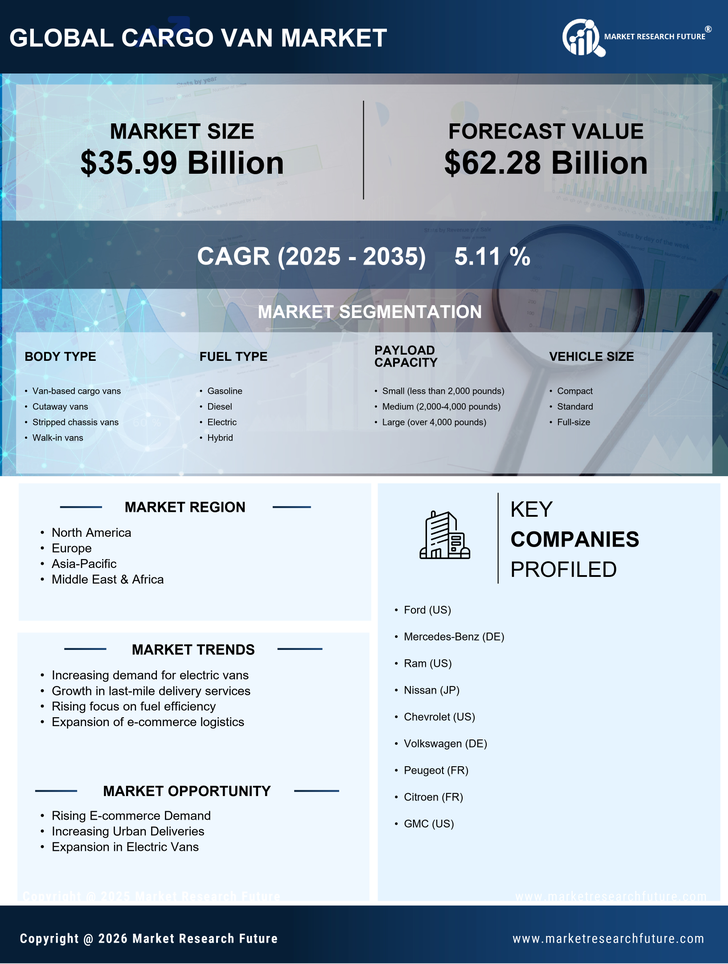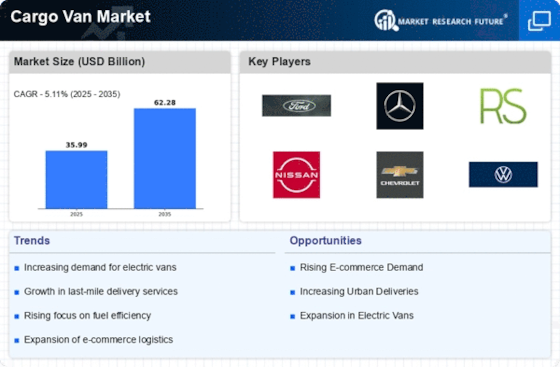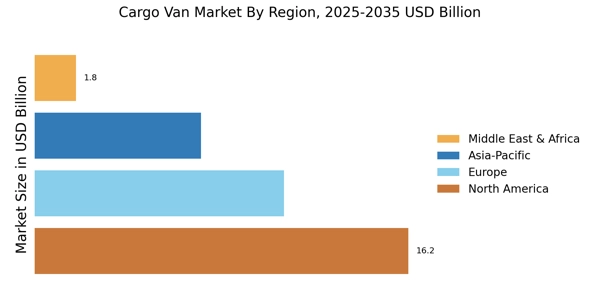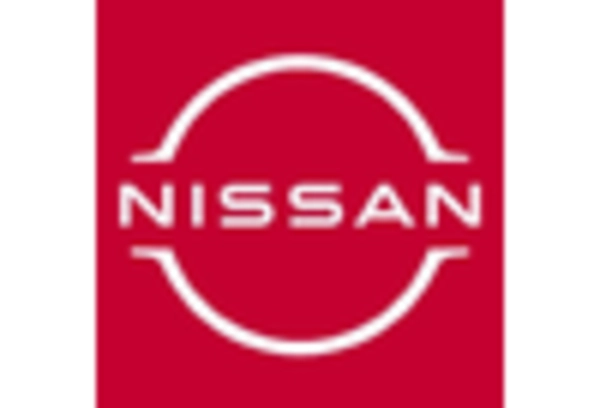E-commerce Growth
The surge in e-commerce activities has been a pivotal driver for the Cargo Van Market. As consumers increasingly prefer online shopping, the demand for efficient last-mile delivery solutions has escalated. In 2025, e-commerce sales are projected to reach approximately 6 trillion USD, necessitating a robust logistics framework. Cargo vans, with their versatility and capacity, are well-suited to meet the needs of e-commerce businesses. This trend indicates that companies are likely to invest in cargo vans to enhance their delivery capabilities, thereby propelling the Cargo Van Market forward. The increasing reliance on rapid delivery services further emphasizes the importance of cargo vans in the logistics chain, suggesting a sustained growth trajectory for the industry.
Urban Infrastructure Development
Urban infrastructure development plays a crucial role in shaping the Cargo Van Market. As cities expand and modernize, the demand for efficient transportation solutions rises. In many regions, urban planners are focusing on improving road networks and logistics hubs, which directly benefits cargo van operations. The construction of dedicated delivery zones and improved access routes enhances the efficiency of cargo vans in urban settings. This trend is likely to stimulate the Cargo Van Market, as businesses seek to optimize their delivery processes in increasingly congested urban environments. Furthermore, the integration of smart city initiatives may lead to innovative logistics solutions, further driving the demand for cargo vans.
Regulatory Support for Green Logistics
Regulatory support for green logistics is emerging as a significant driver for the Cargo Van Market. Governments worldwide are implementing policies aimed at reducing carbon emissions and promoting sustainable transportation solutions. This regulatory environment encourages businesses to adopt eco-friendly cargo vans, which are often equipped with advanced fuel-efficient technologies. In 2025, it is anticipated that the market for electric cargo vans will witness substantial growth, driven by incentives and subsidies provided by various governments. This shift towards greener logistics not only aligns with The Cargo Van Industry favorably in a competitive landscape. Companies that adapt to these regulations may gain a competitive edge, further propelling market growth.
Technological Innovations in Fleet Management
Technological innovations in fleet management are transforming the Cargo Van Market. The integration of telematics, GPS tracking, and route optimization software enhances operational efficiency for businesses utilizing cargo vans. These technologies enable real-time monitoring of vehicle performance, fuel consumption, and delivery schedules, leading to cost savings and improved service levels. In 2025, it is expected that the adoption of such technologies will continue to rise, as companies seek to streamline their logistics operations. This trend indicates a growing reliance on data-driven decision-making in the Cargo Van Market, potentially leading to increased demand for technologically advanced cargo vans that can support these innovations.
Rising Demand for Flexible Logistics Solutions
The rising demand for flexible logistics solutions is a key driver for the Cargo Van Market. As businesses adapt to changing consumer preferences and market dynamics, the need for versatile transportation options becomes paramount. Cargo vans offer the flexibility to handle various types of goods, from perishable items to bulky products, making them an attractive choice for logistics providers. In 2025, the trend towards on-demand delivery services is likely to further amplify this demand, as companies seek to meet customer expectations for quick and reliable service. This shift suggests that the Cargo Van Market will continue to evolve, with an increasing emphasis on adaptability and responsiveness in logistics operations.


















